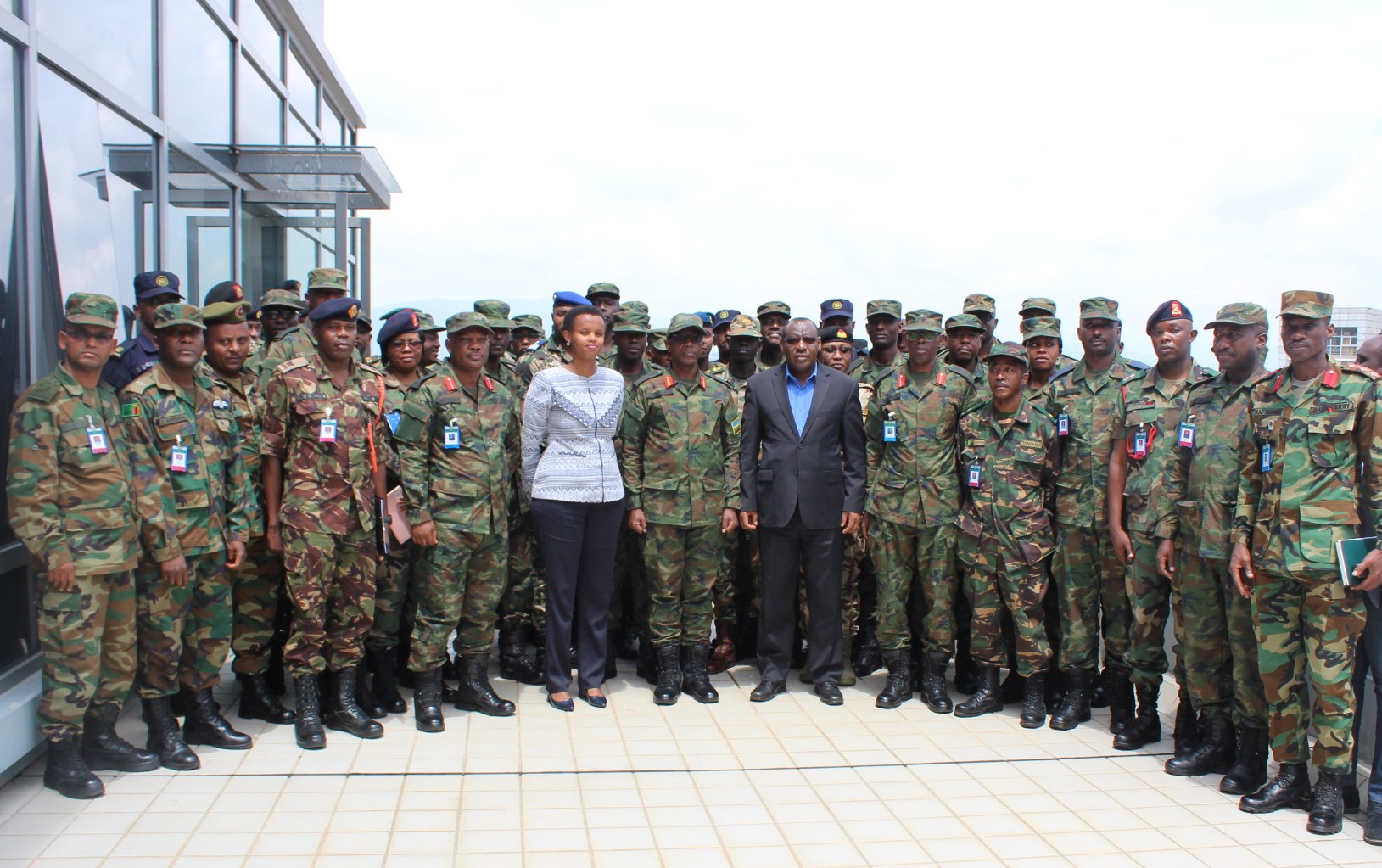Kigali, 3 February, 2020: Minister of Infrastructure, Hon. Claver Gatete received a group of 72 Officers of RDF’s Command and Staff College (RDFCSC) – Nyakinama composed of representatives from 12 African countries undertaking a 5-day Study Tour on the theme “An appraisal of National Settlement Policy towards Achieving Sustainable Socio-Economic Development in Rwanda”. The tour is part of a one-year Master’s Programme in Security Strategic Studies and is gathering senior officers at the rank of Major and Lieutenant Colonel as well as senior Police officers.The military officers are from Botswana, Ethiopia, Ghana, Kenya, Malawi, Nigeria, Senegal, South Sudan, Tanzania, Uganda and Zambia.
Brigadier General Didas Ndahiro, the Commandant of RDFCSC, said that the mission of the course and the tour was to develop intellectual and professional standards “to effectively respond to the challenges of the contemporary complex operating environment”. “We are aware that human settlement is a serious challenge globally. The objective of this tour is to assess the effectiveness of Rwanda’s human settlement policy and offer some recommendations,” Ndahiro said.
The Minister of Infrastructure, Hon. Claver Gatete, briefed the 8th intake of RDFCSC students on the first day of the tour. He presented and explained Rwanda’s settlement policy including the 213 Integrated Development Program (IDP) Model Villages that have been built so far, resettling of residents from environmentally high risk zones and informal settlements.
Minister Gatete pointed out that the 24-year-old settlement policy faces pressing challenges. Some of them are financial, mountainous nature of Rwanda and citizens’ mindset. “Informal settlements or what can be referred to as slums developed very quickly and increasingly so. Most of the informal settlers live in high risk zones and are financially incapable of evacuating from there. For instance, in Kigali alone, it would require the government over Rwf 500 billion to evacuate and resettle them, which is enormous,” Minister Gatete explained. In addition to facing hardships in setting some infrastructures in mountainous locations, Minister Gatete added that some of the high risk zone settlers are not willing to evacuate.
Strategies to address the challenges such as IDP Model Villages and partnership with the private sector to build modern affordable apartments in Kigali are already in place. But further studies and solutions are strongly called for.
“We are optimistic that results of this tour and recommendations from your observations will introduce new ways to operate,” Minister Gatete told the officers.
According to the course’s framework, students are supposed to submit research papers from findings obtained from the tour one week after.

 ENGL
ENGL KINY
KINY